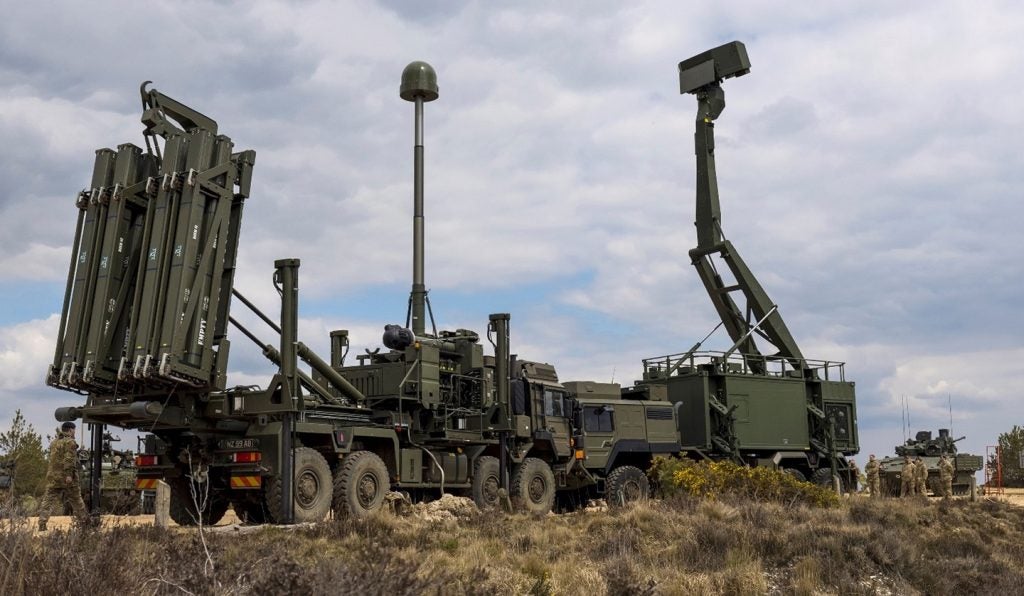

According to BiP Solutions, which runs a number of business intelligence services for the defence sector – including the official UK Ministry of Defence (MoD) contracts portal – there is a massive opportunity for SMEs to break into this area. Moreover, it is also clear that the government intends to encourage and support any that want to try.
“Small businesses are crucial for growth and innovation in this country, and we want them to take an increasing share of our growing defence budget,” said UK Parliamentary Under Secretary of State for Defence Harriet Baldwin last September, speaking in the House of Commons. “We are committed to achieving 25% of our procurement spend being with small and medium-sized enterprises by 2020.”
SMEs already feature prominently in the MoD supply chain, with some 4,900 individual small businesses picking up contracts in 2015/16, worth an average of £155,510 apiece, and that is set to grow as the new target takes effect. The MoD is the UK’s single largest customer for goods, works and services, accounting for around 45% of total government expenditure.
An annual slice of this procurement pie worth an estimated £4.5 billion will be made available to SMEs over the coming years – and it is not only defence specialists that can benefit. The MoD has a need for almost every kind of thing imaginable, not simply dedicated military items and technology, so suppliers of everything from medical equipment to construction materials stand to gain, whether under a contract direct with the MoD, or as subcontractors in the supply chain.
Navigating the process
However, although the wide range and huge volume of goods and services being sourced, coupled with the government initiative to court SMEs, makes the sector increasingly attractive for smaller players to enter, navigating the MoD procurement processes can be daunting for newcomers.
How well do you really know your competitors?
Access the most comprehensive Company Profiles on the market, powered by GlobalData. Save hours of research. Gain competitive edge.

Thank you!
Your download email will arrive shortly
Not ready to buy yet? Download a free sample
We are confident about the unique quality of our Company Profiles. However, we want you to make the most beneficial decision for your business, so we offer a free sample that you can download by submitting the below form
By GlobalDataDespite moves to reduce the bureaucracy and simplify contract terms, the procedures remain structured and quite complex and the formal tendering process can take some getting used to, especially for companies trying to make their first break into the supply chain.
One of four different official procedures may apply for public sector contracts. These include open calls where suppliers tender before a closing date; a two-stage ‘restricted’ process, with potential companies shortlisted and then invited to tender; the competitive dialogue procedure, typically used for more complex purchases, involving negotiation with suppliers ahead of invitations to tender; and the ‘framework agreement’ route where there is need for more flexibility in the details and timing of supply. Under this procedure, potential suppliers can be invited to put themselves forward for the framework, with the choice subsequently being made as to which will be most able to do the work.
Getting to grips with how the whole process fits together is essential for any company wanting to start winning MoD contracts, and for most suppliers, the first port of call is the Defence Supplier Service (DSS).
Defence Supplier Service
Part of the Supplier Relations Team, the DSS is officially described as the “focal point for the provision of advice and guidance to all UK and overseas companies interested in selling to the MoD”. Acting in a purely advisory capacity, the DSS provides a complete service which includes operating a dedicated helpdesk facility, providing a comprehensive overview of the procurement and acquisitions process and attending seminars, exhibitions and other events.
Although the service itself has no direct involvement in awarding contracts or arranging for the purchase of goods or services, it can facilitate contact between prospective suppliers and the various acquisition teams to enable them to discuss possible opportunities directly. In addition, it is a source of useful information packs and publications, including ‘Doing Business with the MoD’, which offers a clear and invaluable insight into the sector.
Specialist exhibitions and trade shows, including the annual Defence and Procurement, Research and Technology, Exportability event, hosted by BiP Solutions, can also provide useful sources of information and points of contact between suppliers and buyers.
MoD DCO
With very few exceptions, defence procurements valued at £10,000 or above, whether for ‘warlike’ or ‘non-warlike’ goods, works or services are required to be advertised through MoD Defence Contracts Online (MoD DCO), the MoD’s official contracts portal. MoD prime contractors may also voluntarily choose to advertise any sub-contract opportunities they have, also at or above the same value threshold.
Access to the site is free. Registered suppliers can search for possible contracts and, once they have set up their profile, can receive a daily alert by email highlighting relevant opportunities that match their business activities. In addition, MoD DCO also forms the gateway to UK, European and global defence-related openings, specialist defence market intelligence, archived defence agency contract awards and the Defence Contracts Bulletin magazine.
Economic drivers
There are sound economic drivers behind encouraging greater SME participation in the MoD procurement process. The UK has the world’s fifth largest defence budget – £44.7bn according to the latest figures available from the Stockholm International Peace Research Institute – but data released last year shows that in 2015/16, 42% of it was spent with just ten firms. Over the preceding five years, however, the value of direct contracting with SMEs fell by a quarter to just 3.9%.
With SMEs said to make up around 60% of all private sector employment and accounting for slightly under half of the UK private sector’s turnover, there is an obvious case for boosting the amount spent here both directly and as part of the wider supply chain. In the long run there may be even bigger benefits to be had for the ‘post-Brexit’ economy in export terms if this also encourages SMEs to enter the overseas defence market.
A recent report from the Centre for Economics and Business Research put UK SMEs in the bottom five of European nations for export performance, and suggested doubling their current 20% export rate could bring in over £140bn. Defence sales could undoubtedly play a part in that.
Value for money
Nevertheless, it is not solely about GDP and the balance sheet for UK PLC. During his tenure as Minister of State for Defence Procurement, Philip Dunne spoke about harnessing ‘UK brainpower’ and supporting innovative companies to deliver the best possible equipment and the best value for money.
Clearly SMEs are never going to be able to compete with tier-one prime contractors when it comes to big ticket items such as the Royal Navy’s new carriers, or the eye-watering development budgets needed for the likes of the F-35 – they are just not set up that way. However, elsewhere they can get a foot in the door, and very successfully, particularly where they can demonstrate the flexibility needed to provide an exact, bespoke solution, rather than a ready-made product that broadly fits the bill, and for which a sizeable chunk of the price is there to offset hefty R&D costs. SME overheads are lower, too.
All in all, channelling 25% of the procurement spend towards SMEs should lead to better value for money and allow the MoD to make its budget go further, while supporting employment, innovation and, arguably, the UK’s balance of payments.
Of course, it would be wrong to suggest that breaking into the defence supply chain was a trivial matter for any new small player; it takes determination and dedication, and even with the newly ‘reduced’ bureaucracy, the procurement process is still complex. Still, in these times of economic uncertainty, heightened global tensions and straitened public spending, it offers a rare example of a potential win-win for everyone involved.







